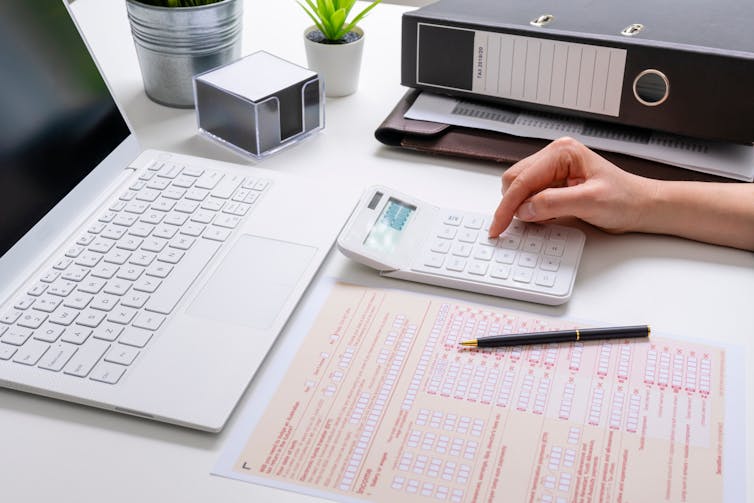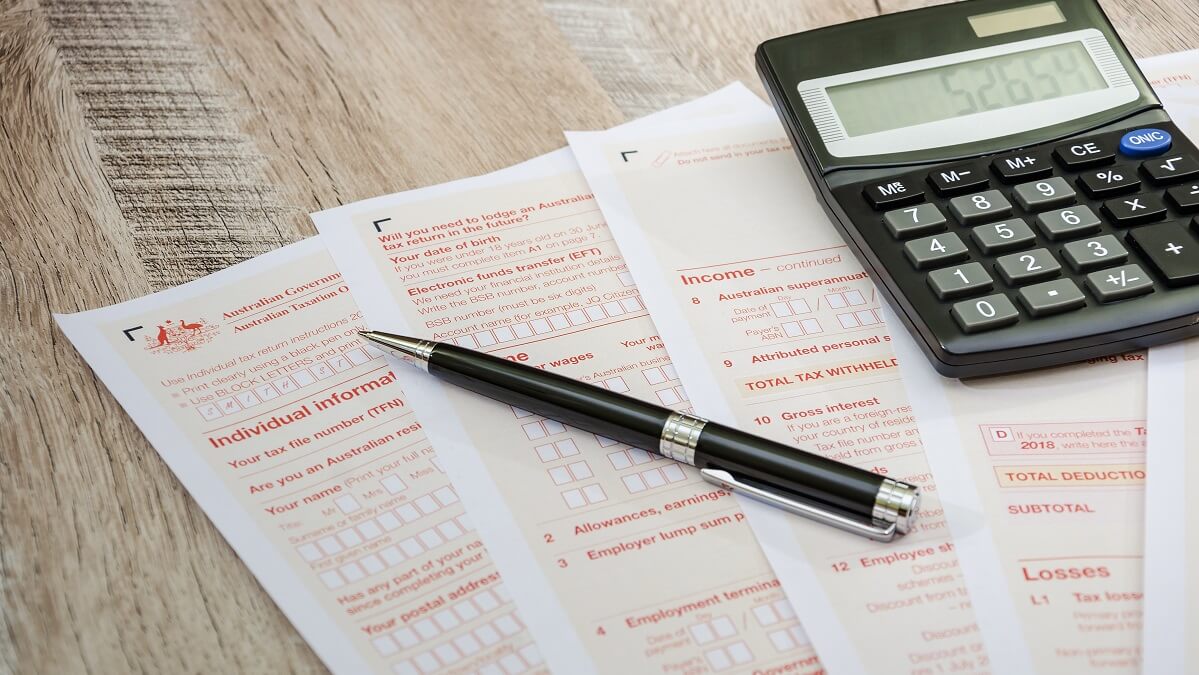Jawad Harb, RMIT University and Elizabeth Morton, RMIT University
Ten years ago, the Australian Taxation Office (ATO) created the “myTax” portal, an easy way to lodge your tax return online.
There was an “e-Tax” filing option before the 2015-16 tax year, but this was quite complicated and barely better than filling out a form online.
In comparison, myTax is simpler and more automated. It’s available 24 hours a day, is free to use, and you will typically get your refund within two weeks.
But the chances are you won’t be using it.
Popular plans right now
In fact, slightly less than 36 per cent of Australia’s 15 million taxpayers used the myTax portal in 2020-21 – the most recent tax year for which the tax office has published data.
About 64 per cent of tax returns were lodged through tax agents. This is one of the highest rates among 38 Organisation for Economic Co-operation and Development nations. Meanwhile, just 0.6 per cent of Australians still used the paper-based form.
So why have Australians – who have quickly embraced the internet for everything from shopping to dating – been so slow to embrace myTax?
For some, particularly older people, it’s about being intimidated by the technology. Others may be concerned with cybersecurity risk.
But for most it’s about the perceived complexity of the tax system and the process, regardless of the technology. They see using a tax agent as easier and the way to maximise their tax refund.
While in some cases this may be true, in many instances it’s simply a perception – but one the tax office will need to address if it wants to promote use of myTax.
Reasons for the low uptake of myTax
Our research suggests most people who have used the myTax portal think it is easy to use.
We surveyed 193 taxpayers who have used the system. About three-quarters agreed the system was clear and understandable, and said they would keep using it.
But of course these are people who have chosen to use the system, so their responses don’t shed much light on the reasons people don’t use myTax.
Answers to that come from other published research, in particular from the Inspector-General of Taxation (the independent office investigating complaints about the tax system) as well as the House of Representatives’ Standing Committee on Tax and Revenue.
Evidence submitted to these bodies indicate that Australians prefer tax agents to avoid errors in claiming deductions.
The parliamentary committee’s 2018 inquiry into the tax system was told the use of tax agents ballooned from about 20 per cent in the 1980s, peaking at about 74 per cent of all taxpayers:
The Tax Commissioner considered that the size of the TaxPack had probably
contributed to that rise, driving many people with simple tax affairs to a tax
agent because it looked daunting.

Shutterstock
In short, habits are hard to break. Having come to rely on tax agents, most Australians keep using them, despite the system being vastly improved.
For example, the myTax system now simplifies the process by pre-filling data from government agencies, health funds, financial institutions and your own employer. About 80 per cent of our survey respondents said this was helpful.
Taking care of the digital divide
This suggests the main barrier to increasing use of the myTax system is mostly habit and the perception the tax system is too complicated to navigate without an expert.
There is also a small percentage of people who feel uncomfortable with computers. This is reflected in the minority of respondents in our study who said they were unlikely to use myTax again, as well as the tax office’s data showing some people continue to stick with paper lodgement.
Those more likely to find the system daunting are the elderly, those with low English skills, people with disabilities and those with low educational attainment.
These people’s needs should not be forgotten as the Australian Digital Government Strategy aims to making Australia a “world-leading” digital government by 2025, delivering “simple, secure and connected public services”.
Even with the greatest online system in the world, it’s unlikely there will ever be a complete transition.
Jawad Harb, PhD Candidate, RMIT University and Elizabeth Morton, Research Fellow of the RMIT Blockchain Innovation Hub, Lecturer Taxation, RMIT University
This article is republished from The Conversation under a Creative Commons license. Read the original article.
Do you lodge your tax online through myTax? Or are you still using a traditional accountant? Let us know in the comments section below.
Also read: How your retirement payments are taxed and what is exempt


I used the eTax system and the myTax system and in my opinion the eTax system was far easier to use
the whole system is confusing and not all old people have good computer skills and internet is not always reliable. Also MV gov is minefield
There is no incentive for the ATO to increase myTax usage as it will receive and process an online return from tax agents ie transactional costs are minimised either way.
I did prefer the the old etax system over myTax as I felt it provided more detailed online help. myTax could be improved by providing some online smarts linking the users profile to common rules eg if your a tradie what can you deduct, if you earned interest what can you deduct, if your a retiree what can you deduct (and similarly what income you need to declare). This would help in building confidence that you are doing your self-assessment correctly. To that end, the ATO could provide online presentations to help educate its customers in using myTax and associated rules for income and deductions. At times I have been confused because information provided on the ATO site is not clear on whom it applies to and you need to dig somewhat deeper to determine that level of detail.
The ATO should also permit unregistered agents to complete tax returns on behalf of other people (whether or not they charge a fee, which of course should be deductable). Most tax assessments are so straight forward that paying an agent is a waste of money.
Reliance on tax agents to do the tax returns for taxpayers is not due to the lack of computer skills. It is the complexity of the the tax law and the myriads of tax rules for property, sole traders, working from home, Australian expats, minors, redundancy payments, and etc. When I went to university, what I learned about the income tax provisions in 1973, obsolete in 1974. Now I am retired, I leave the experts to do my income assessments for me., because there is always a risk that the ATO will do an audit of my returns. I don’t think I can cope with this mammoth task at my age.
myTax (seriously, who comes up with these shockingly bad names) is easy enough, but there are annoyances in the system that are inexplicable. One of them is the need to provide your partners income. For what possible reason? We don’t combine incomes between taxpayers in our system, so what is the purpose? The ATO itself knows your partners income, and within households it may cause angst to raise that matter with the other person. When you delve in further, they say you can simply make an estimate, because it’s not important. WHAT? The ATO is asking you to – just pick a random number, and says it doesn’t really matter. Why ask at all?
The decryption of the ATO and accounting industry jargon within the application and its help could do with some improvement as well. Tax accountants thrive like no other industry (except perhaps Superannuation advisers) with their usage of arcane terms whose only purpose is obfuscation, so that punters will come back to them in a state of confusion and seeking relief by having someone else do the job. They make the medical and IT professions look like poets by contrast. Increase the use of PLAIN ENGLISH (and other languages as needed) within the system.